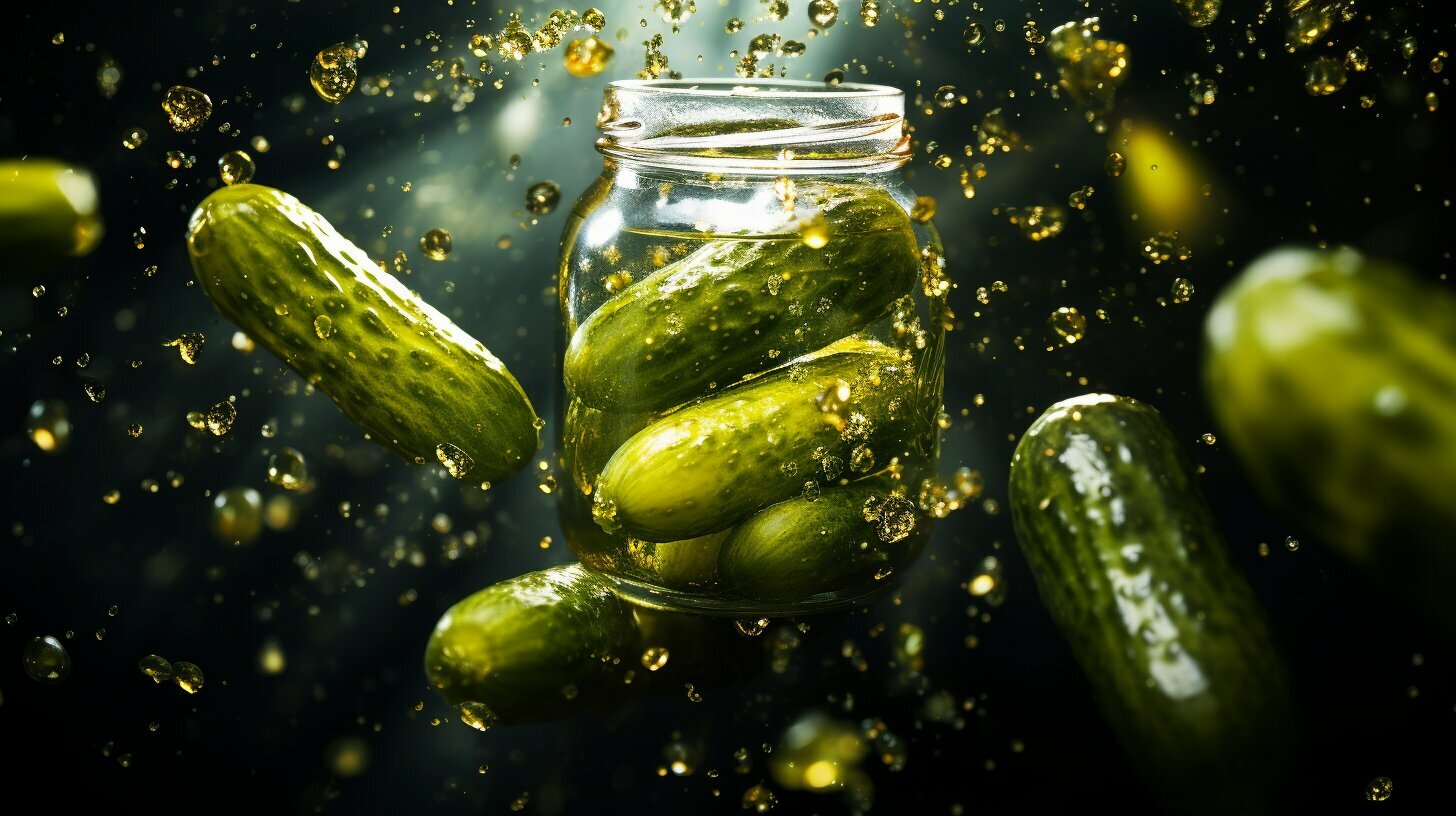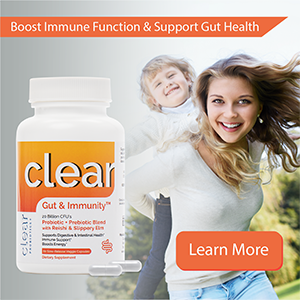Table of Contents
TogglePickles have been enjoyed for centuries, but do they also provide gut-friendly bacteria?
In this article, we will explore the relationship between pickles and gut-friendly bacteria.
We will discuss the health benefits of pickled foods, the fermentation process for pickles, and the potential presence of probiotics in pickled foods.
Key Takeaways:
- Fermented pickles, not those made with vinegar, have the potential to contain gut-friendly bacteria.
- Pickles that are fermented are considered a probiotic food that can contribute to the population and diversity of the gut microbiome.
- It is recommended to buy fermented pickles from the refrigerated section or make your own using cucumbers, fresh herbs, kosher salt, water, and a glass jar.
- Quick pickles made with vinegar do not offer the same beneficial bacteria potential as fermented pickles.
- Fermented foods like pickles can help support the diversity of the gut microbiome and provide probiotics.

Gut Health Benefits of Pickles
Pickles offer more than just a tasty crunch – they can actually contribute to a healthy gut.
When pickles are fermented rather than made with vinegar, they become a probiotic food that can help support the diversity and population of the gut microbiome.
The fermentation process creates an environment for the growth of beneficial bacteria, such as lactobacillus, which are known to have positive effects on gut health.
Why is gut health important? Well, a healthy gut microbiome plays a crucial role in digestion, immune function, and overall well-being.
So, how can you incorporate more gut-friendly pickles into your diet? It’s recommended to buy fermented pickles from the refrigerated section of your grocery store.
These pickles are more likely to contain live bacteria and provide probiotic benefits.
Alternatively, you can try making your own fermented pickles at home using cucumbers, fresh herbs, kosher salt, water, and a glass jar.
This way, you have control over the ingredients and fermentation process, ensuring that your pickles are truly probiotic-rich.
By making informed choices and incorporating fermented pickles into your diet, you can support your gut health and enjoy the tangy, crunchy delight they provide.
| Key Points: |
|---|
| Pickles can contribute to a healthy gut when they are fermented. |
| Fermented pickles are a probiotic food that supports the diversity and population of the gut microbiome. |
| It is recommended to buy fermented pickles or make your own at home using cucumbers, fresh herbs, kosher salt, water, and a glass jar. |
| Quick pickles made with vinegar do not have the same potential as fermented pickles. |
| Check labels and ingredients to ensure pickles are truly fermented and contain live bacteria. |
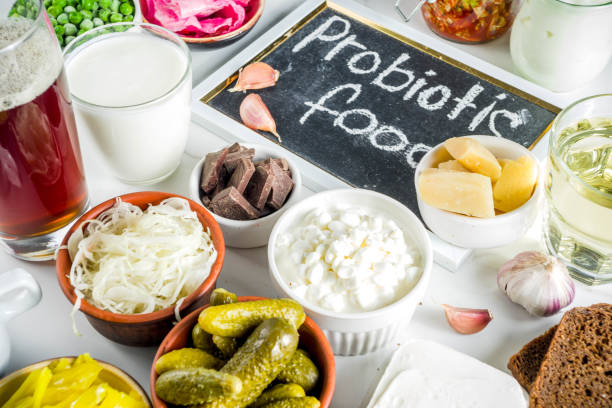
The Fermentation Process for Pickles
During fermentation, cucumbers are submerged in a brine solution made of water, kosher salt, and fresh herbs.
This brine creates an environment that promotes the growth of lactic acid bacteria, such as lactobacillus, which are responsible for the fermentation process.
As the cucumbers ferment, the lactic acid bacteria consume the sugars in the cucumbers and produce lactic acid.
This lactic acid not only gives pickles their distinctive sour taste but also helps to preserve them by creating an acidic environment that inhibits the growth of harmful bacteria.
The longer the fermentation process, the tangier and more probiotic-rich the pickles become.
When it comes to choosing fermented pickles for optimal gut health, it’s important to check the labels and ingredients.
To ensure the pickles you choose or make at home are gut-friendly, opt for fermented pickles that are sold in the refrigerated section of the grocery store.
Probiotics in Pickled Foods
Fermented pickles are considered a probiotic food that can contribute to the population and diversity of the gut microbiome.
When shopping for pickles, look for options in the refrigerated section rather than those made with vinegar.
If you want to ensure that your pickles contain live bacteria, making your own at home is a great option.
All you need are cucumbers, fresh herbs, kosher salt, water, and a glass jar.
By controlling the fermentation process, you can create a batch of pickles that are rich in probiotics and tailored to your taste preferences.
When choosing pickles, it’s essential to check the labels and ingredients. Look for terms like “fermented” or “live cultures” to ensure that the pickles contain the beneficial bacteria you are seeking.
How to Make Homemade Pickles
Making homemade pickles is a simple and fun process. Here’s a basic recipe to get you started:
- Wash and slice cucumbers into desired shapes.
- Place the cucumbers, fresh herbs (such as dill or garlic), and kosher salt into a glass jar.
- Add enough water to cover the cucumbers and herbs, making sure they are fully submerged.
- Close the jar tightly and let it sit at room temperature for a few days, allowing the fermentation process to take place.
- After the desired fermentation time, transfer the jar to the refrigerator to slow down the fermentation process and keep the pickles fresh.
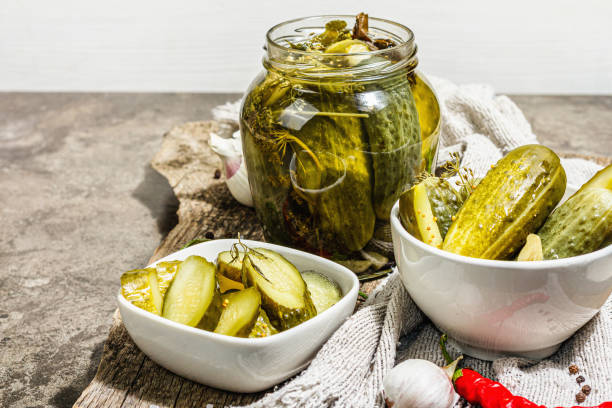
Pickling and the Gut Microbiota
The consumption of pickled foods can have a positive impact on the delicate balance of the gut microbiota.
Fermented foods like pickles pack beneficial bacteria that contribute to the diversity and population of the gut microbiome.
These live bacteria, known as probiotics, play a crucial role in supporting digestive health and overall well-being.
Lactobacillus bacteria are produced when pickles undergo the fermentation process. These probiotic bacteria help break down the sugars and starches in the pickles, releasing lactic acid as a byproduct.
This lactic acid not only gives the pickles their tangy flavor but also creates an acidic environment in the gut, which helps inhibit the growth of harmful bacteria.
The presence of probiotics in pickled foods can help support a healthy balance of bacteria in the gut.
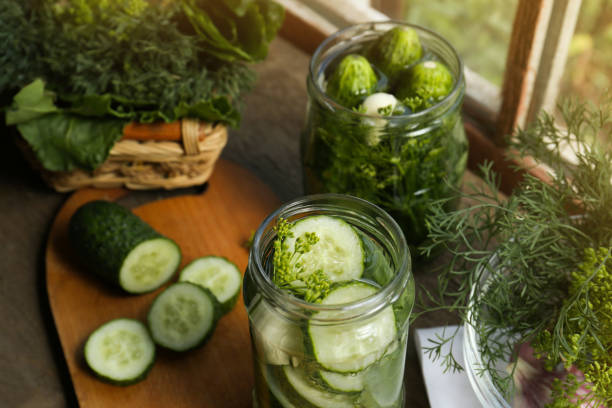
Choosing Fermented Pickles for Optimal Gut Health
When it comes to gut health, not all pickles are equal, so you need to know what to look for when you buy or make your own.
Fermented pickles, unlike their vinegar-based counterparts, are the key to unlocking the potential of gut-friendly bacteria.
These pickles undergo a natural fermentation process that encourages the growth of beneficial live bacteria, making them a probiotic food that can contribute to the population and diversity of the gut microbiome.
When buying pickles, it’s important to read labels carefully. Look for keywords like “fermented” or “naturally fermented” to ensure that you’re getting the real deal.
Moreover, always choose pickles that don’t list vinegar as the main ingredient. This is because it often indicates that manufacturers made them using a quick pickling method, and consequently, they probably don’t contain the beneficial bacteria you’re looking for.

A Word from HealthyVibe
Pickles, when prepared through fermentation, can be a delicious and healthful addition to your diet, providing gut-friendly bacteria and supporting overall digestive health.
Embrace the simplicity and benefits of homemade pickles and enjoy the potential improvements to your gut health.
So, go ahead and enjoy the tangy and crunchy goodness of pickles, knowing that they can contribute to your overall digestive health.
FAQ
1. Can pickles have gut-friendly bacteria?
If you ferment pickles rather than using vinegar, they can potentially contain gut-friendly bacteria. People consider fermented pickles a probiotic food that can enhance the population and diversity of the gut microbiome.
2. Where can I find fermented pickles?
Buy fermented pickles from the refrigerated section of your grocery store. Look for labels that show the pickles are fermented and contain live bacteria.
3. Can I make my own fermented pickles?
Absolutely! Making your own fermented pickles is a great way to ensure you’re getting the beneficial bacteria. All you need is cucumbers, fresh herbs, kosher salt, water, and a glass jar. There are many recipes available online to guide you through the fermentation process.
4. What is the difference between fermented pickles and quick pickles?
Fermented pickles undergo a fermentation process that creates an environment for the growth of beneficial bacteria. On the other hand, you make quick pickles by soaking cucumbers in vinegar, and they don’t have the same potential for beneficial bacteria.
5. How do fermented foods like pickles support gut health?
Fermented foods like pickles help support the diversity of the gut microbiome by introducing probiotics, which are beneficial bacteria. These probiotics can help improve digestion, nutrient absorption, and overall gut health.
6. Do other fermented foods besides pickles benefit gut health?
Yes, many other fermented foods can benefit gut health. Some examples include sauerkraut, kimchi, kefir, yogurt, and kombucha. Including a variety of fermented foods in your diet can help promote a healthy gut microbiome.
7. How can I ensure that the pickles I buy contain live bacteria?
To ensure that the pickles you buy contain live bacteria, it’s important to check labels and ingredients. Search for pickles that specifically say they are fermented and have live cultures or bacteria. You can usually find this information on the packaging or label.
8. Can pickles alone improve gut health?
Pickles can contribute to a healthy gut microbiome, but it’s important to maintain a balanced diet and include a variety of other gut-friendly foods as well. Consuming a combination of fermented foods, fiber-rich foods, and prebiotic foods can help promote optimal gut health.

